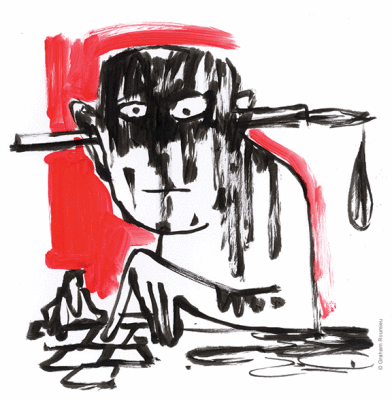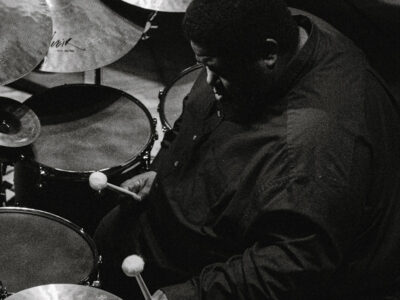
“I always say Chinese is the easiest language I ever learned to speak, and the hardest language ever made by God to write,” says Victor Mair, professor of Chinese languages and history. That difficulty, he argues, is leading inexorably to a collision with the modern world.
In July 2010, writing for the Language Log blog, Mair coined the phrase character amnesia to describe the phenomenon of Chinese people forgetting how to write the vast number of characters that comprise their ancient language—largely because of an increasing dependence on computers, smartphones, and the like, which take an “alphabetical approach to literacy.”
The phrase “really struck a raw nerve, because it was the right expression for something that was happening, and people didn’t know how to refer to it,” notes Mair. He credits a New York Times writer named Jennifer 8. Lee with first describing the phenomenon for an English-speaking audience in 2001.
“She wrote about the adverse effects of people using electronic devices to write characters,” Mair explains. “So already, like 10 years before I invented the term, people were very much aware. I have lots of Chinese friends, and some of them had been using computers to enter Chinese characters for 25 years. And they had virtually forgotten how to write characters.”
Given that there are more than 80,000 Chinese characters (many of them seldom used), it’s not surprising that there have been attempts to come up with more user-friendly systems. In the 1950s, the Chinese government developed a phonetic system for transcribing Chinese characters into a romanized script known as Pinyin. Some 35 years ago, Mair made a bold prediction.
“I said China is either going to become an English-speaking nation, or it’s going to romanize, simply because Chinese script is like Sumerian or Akkadian or Egyptian,” he recalls. “That kind of old, archaic script is just not suited for modern life. Of course the Chinese love it, and even Westerners who study it love it, because it’s aesthetically appealing. But for sheer economics’ sake, they’re going to do one or the other.
“And right now it’s neck and neck,” he adds. “Because everybody in China wants to learn English—it’s a ticket for a better job, more money, the chance to go abroad. Every kid goes to first grade, and they all learn English.”
Some Chinese government academicians point to English as the culprit behind the decline and fall of Mandarin.
“That’s shifting the blame from the computers, which is really what’s killing the writing,” Mair says. “My prediction is being borne out—English is surging; alphabetic input is surging. And they may kind of intersect, in a way. But I have some very stubborn, old-fashioned Chinese friends who resisted computers for a long time because they had an instinctive sense that, if they used them, they would forget how to write.”
Unlike most cultures, where “speech is primary, and writing is secondary,” Mair notes, in China “that often gets turned upside down. The cart gets put in front of the horse. So writing becomes the be-all and end-all, and they look down on speech.”
There are other ways to enter characters into a computer besides alphabetization, he points out, such as “character-component entry systems” that assign certain strokes to certain keys.
Theoretically, people can also input characters by writing them on touchpads, he adds. “But I only think about 2 percent of the people even try to do that, because those devices are more expensive, and there are so many bugs. And a touchpad doesn’t really pick up the characters that well.”
As evidence of a reactionary backlash, Mair points out that the Chinese government recently issued a long list of 8,150 characters that is described as a sort of “identification card” for the writing system.
“Nobody can learn 8,150 characters,” he says incredulously. It’s cognitively impossible for a brain to be able to command that many characters. At most, somebody’s going to learn 3,000.”
In his Language Log post, Mair noted that there are roughly 11 basic strokes, 200 radicals, and 850 phonetic components to characters. Writing characters is “heavily neuromuscular, because the way people learn how to write characters, they just repeat them over and over again,” he adds. “It’s like playing a violin or riding a bike—you can’t just think about it. The characters cannot be recalled strictly by memory, because, when you try and do that, they just won’t come out.”
English speakers often say that a word is “on the tip of my tongue,” whereas the Chinese have a phrase that translates to, “You pick up the brush, but you forget how to write it.”
“So they think they can write this character, and then they start to write it, and maybe they get a few strokes, and it’s just not happening,” Mair explains. “And in Chinese, if you miss a stroke or two, the whole character falls to pieces because there are so many characters that closely resemble each other. And sometimes, even if you miss one tiny little dot, you lose the character.”
That scenario has played out many times in a course Mair teaches at Penn called Language, Script, and Society in China. Roughly half the students in his class are from China, he notes, and when he has challenged them to write certain simple characters on the blackboard, they often find to their mortification that they can’t.
Those grad students have plenty of company back in China.
“The latest thing that’s really been intriguing me is the comparison between spelling bees and Chinese dictation contests,” Mair says. “That has reignited the whole issue of character amnesia. You can’t really say, ‘How do you spell this character?’ because you can’t spell it, so they say, ‘How do you write it?’ And they were finding out that people couldn’t reproduce the characters for very common words, like toad or sneeze or egg. Even the word for shrimp, which is not really a very complicated character. The thing is, one or more of the constituent characters for these terms may only occur in those words. So they’re not common characters, even though the words may be common.”
Perhaps the biggest downside to learning so many characters is that it may come at the expense of other kinds of academic performance.
“One of the big problems in Chinese science is that it’s lacking creativity,” says Mair, who thinks that the massive amount of rote memorization may hinder creative thinking. Or maybe simply displace it. “Those little kids are spending two hours a night—at least—just practicing what our kids could learn in, like, 10, 15 minutes,” Mair remarks. “And our kids also start to learn to read more complicated materials more quickly.”
How serious is this? Well, one of Mair’s first posts on Language Log concerned the delicate matter of “why Chinese write fuck when they mean dry,” he says. “It has something to do with character simplification because they collapsed the character for dry into another character. So they say fuck fruit and fuck noodles and stuff like that. And I have photographic evidence of all these things in grocery stores.”
Ribald snafus aside, the issue is a serious one.
“Supposing you were separated from your electronic device, your cellphone or your laptop, and you really had to write something down by hand?” he asks pointedly. “It’s almost like, what if the electricity goes out?”
For Mair, “it’s a very exciting time to live, because you have this 3,200-year-old script which is on the verge of extinction. And it may happen in our lifetime, though it’s not going to die out completely because there are always going to be classicists.”
To those who don’t like it, he says, just don’t shoot the messenger. “When people get angry at me they’ll say, ‘You want to eradicate the characters. You don’t like Chinese characters.’ And I say, ‘No, I’m just trying to describe what is happening.’ I advocate digraphia, which means a writing system in which two different types of scripts—romanization and Chinese characters—are permitted to coexist together. Let them do their own things in their respective spheres, and just let the market decide. You can’t stop it anyway.
“I do not advocate the eradication of characters,” he adds. “I’m just saying it’s happening, man.” —S.H.




